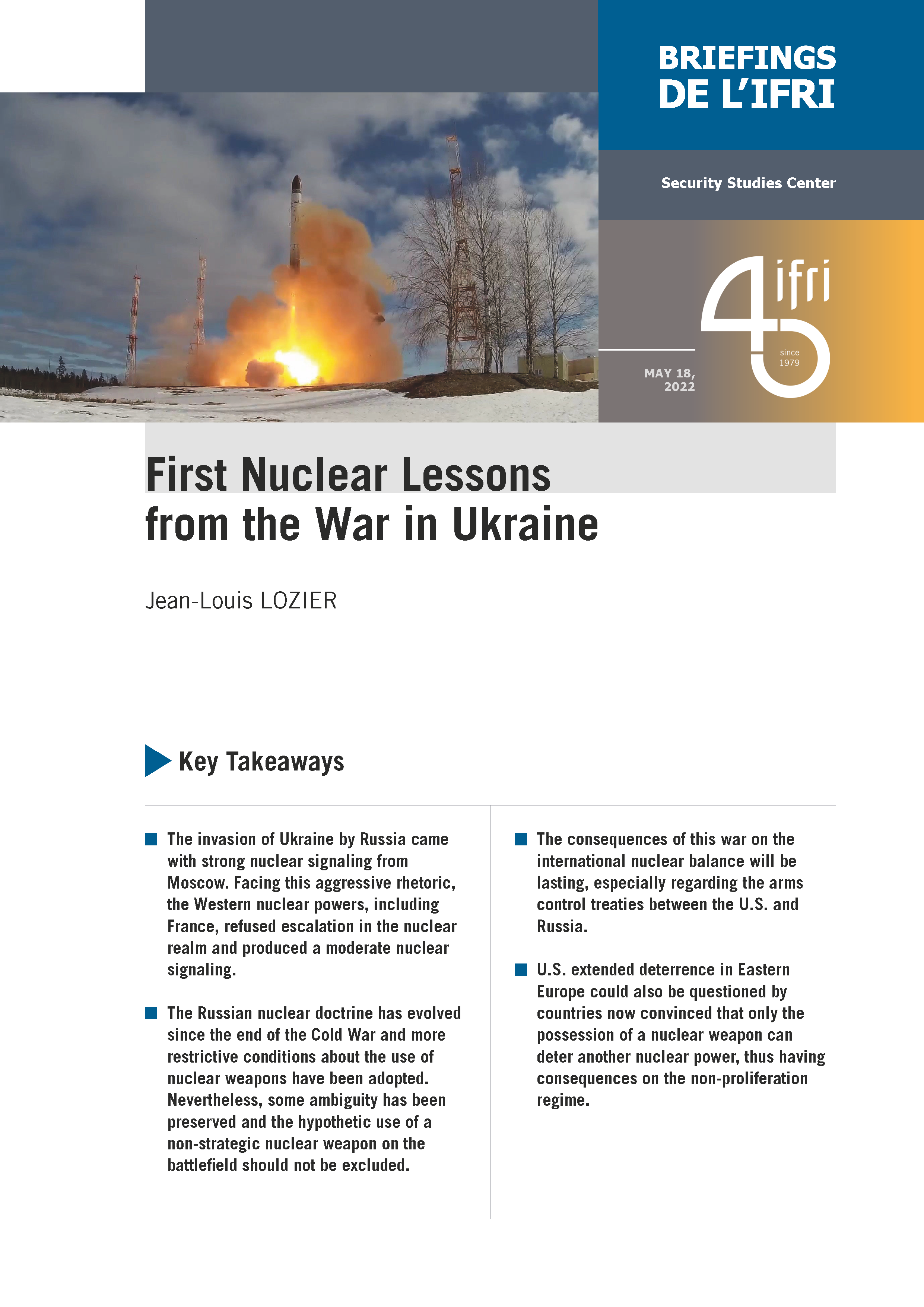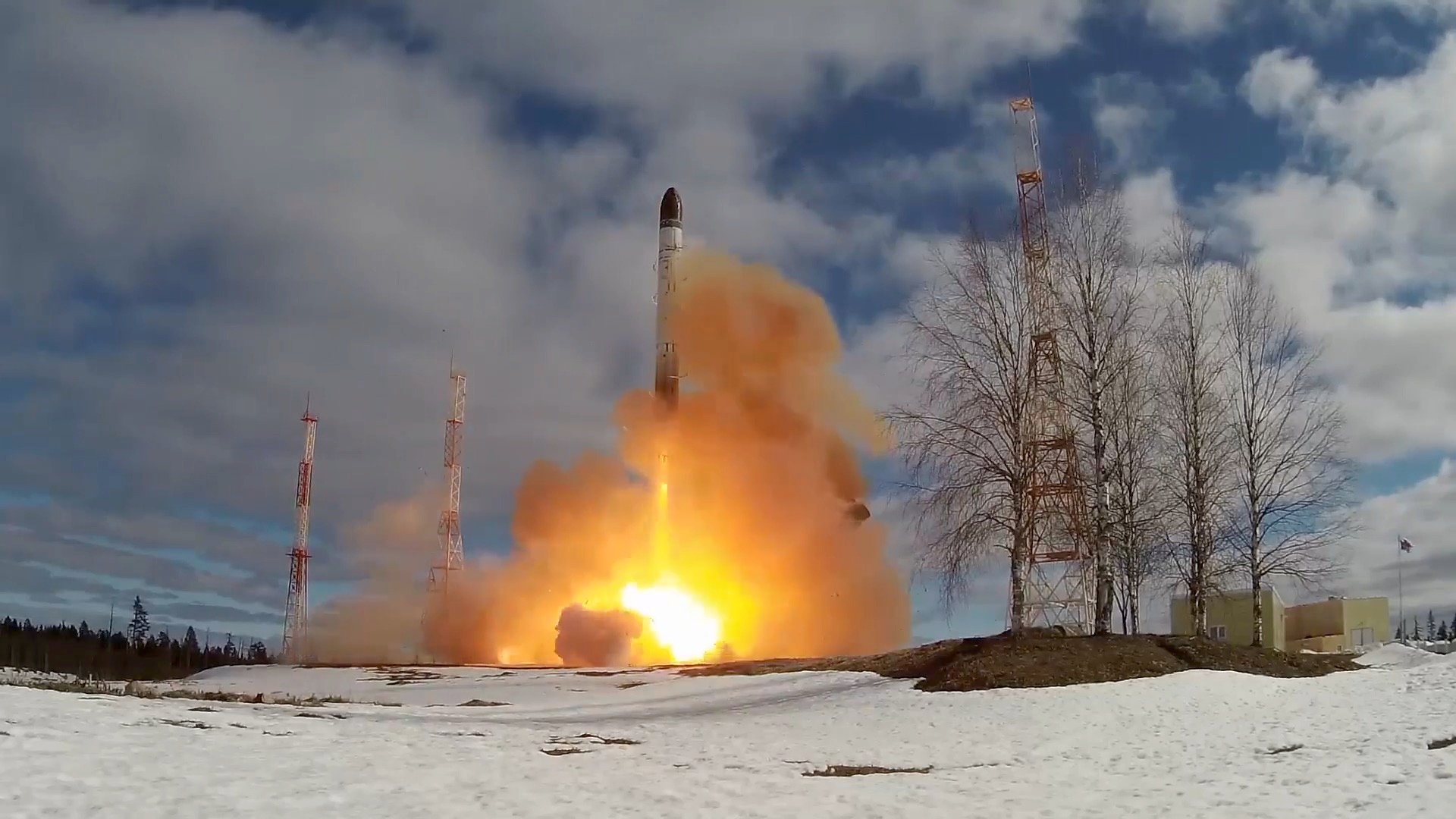First Nuclear Lessons from the War in Ukraine

The invasion of Ukraine by Russian forces on February 24th displays undeniable nuclear attributes. The purpose of this text is to analyze the initial lessons of this conflict, with regard to the balance of forces between nuclear powers.

-
The invasion of Ukraine by Russia came with strong nuclear signaling from Moscow. Facing this aggressive rhetoric, the Western nuclear powers, including France, refused escalation in the nuclear realm and produced a moderate nuclear signaling.
-
The Russian nuclear doctrine has evolved since the end of the Cold War and more restrictive conditions about the use of nuclear weapons have been adopted. Nevertheless, some ambiguity has been preserved and the hypothetic use of a non-strategic nuclear weapon on the battlefield should not be excluded.
-
The consequences of this war on the international nuclear balance will be lasting, especially regarding the arms control treaties between the U.S. and Russia.
-
U.S. extended deterrence in Eastern Europe could also be questioned by countries now convinced that only the possession of a nuclear weapon can deter another nuclear power, thus having consequences on the non-proliferation regime.
This content is also available in French: "Premiers enseignements nucléaires de la guerre en Ukraine".
Download the full analysis
This page contains only a summary of our work. If you would like to have access to all the information from our research on the subject, you can download the full version in PDF format.
First Nuclear Lessons from the War in Ukraine






